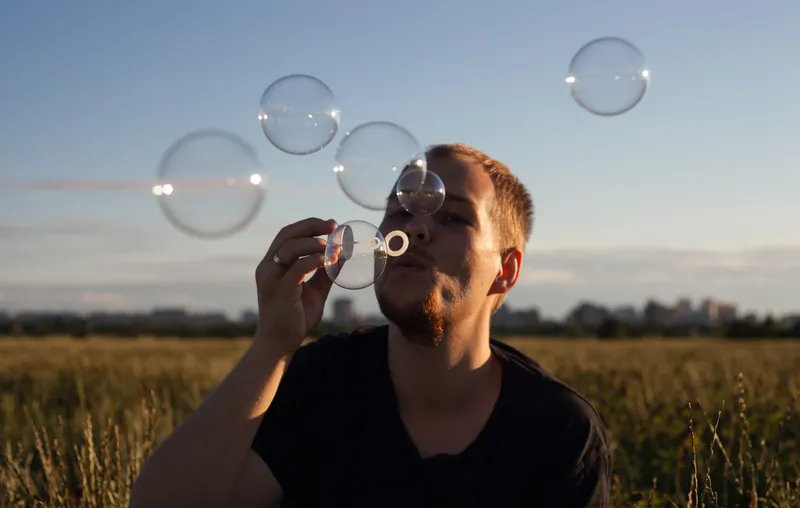Being an Adult Child (in a Good Way)
I never really grew out of childishness.
17 Nov 2017

I never really grew out of childishness.
It’s just so fun. Children get to be curious, silly, and playful. And there’s something delightfully mindful about the capacity they have to get absorbed in an activity for hours on end.
Naturally, we can’t remain entirely childlike forever, but I’ve been thinking lately about which parts of childishness we might benefit from, even now we’re Definitely Responsible Adults. (Which I am.) (Honest.)
Growing Out of Wonder
What strikes me when I think back to my own childhood is a powerful sense of wonder. The world seemed massive, too big to even begin to grasp. Everything seemed possible. To a child, magic and electricity and dragons and computers are all equally likely.
But unfortunately, I grew up, and that sense of wonder faded as I learned what is actually real, and what isn’t.
Once you develop an accurate model of the world, wonder necessarily fades. New facts no longer create whole new categories in your mind—they’re just details. Learning about Viking sea burials is cool… but it’s less exciting than discovering that Vikings existed in the first place.
That feeling of discovering a whole new category is still one of my favourites. That moment of “wait, that’s a thing?!” is the closest I come to that childish feeling of constant wonder.
Believing You Know Everything
Of course it’s necessary to develop a more accurate model of the world. But, as well as decreasing the sense of wonder, it brings some other traps. For example, like many teenagers and young adults, I fell into the common trap of thinking I knew everything.
With hindsight, it’s obvious why that trap is so tempting. We grow up from total helplessness and dependence to being able to—pretty much—look after ourselves. Of course that makes us feel more confident: we’re finally getting a grip on how this world works! As kids our minds were blown by a light switch, but now we’re mature teenagers, we’ve pretty much got everything sorted…right?
On top of that natural confidence in our growing abilities, there’s a huge social pressure to signal that we’ve grown out of our weak, dependent childish stage. It becomes very tempting to act like we know everything to signal confidence. (And from there, it’s easy to start to believe our own hype.)
But, luckily, I learned an important lesson: we don’t actually know everything.
More than that: and we never will.
And even more still: and that’s okay!
These turn out to be fun lessons, because they re-open us to the possibility of childish openness. There’s loads more to learn, and that’s exciting!
Childishness as an Adult
Thinking about childishness has made me more determined to keep embracing that natural childish curiosity.
It’s easy to forget that I don’t know as much as I think I do. There’s a constant temptation to be dismissive of new knowledge, to assume that what we don’t already know isn’t worth knowing.
But, to state the obvious, we don’t know what we don’t know. Dismissing everything we don’t already know freezes us into position—often positions we formed, ironically, as children.
The worst combination is a child’s understanding of the world with an adult’s unwillingness to learn… but that’s an easy combination to accidentally fall into.
Ideally, I think we should aspire to be the other way around: a child’s willingness to learn, informing an adult’s (growing) understanding.
Rediscovering these positive aspects of the childish state isn’t about the trappings of childhood – the clothes, the toys, the silliness, or the self-centeredness. It’s about embracing a childish attitude – being open, curious and, above all, believing that there’s always more to learn.
And this attitude remains within us, if we want it.
This article was originally written for Puttylike

Neil Hughes is the author of Walking on Custard & the Meaning of Life, a comical and useful guide to life with anxiety, and The Shop Before Life, a tale about a magical shop which sells human personality traits.
Along with writing more books, he spends his time on standup comedy, speaking about mental health, computer programming, public speaking and everything from music to video games to languages. He struggles to answer the question "so, what do you do?" and is worried that the honest answer is probably "procrastinate."
He would like it if you said hello.